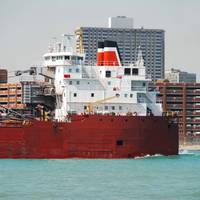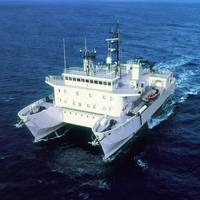Crumbling Great Lakes Ports Infrastructure Makes Port Insurance Even More Critical

The state of Great Lakes port infrastructure is one of the biggest issues facing the U.S. and Canadian maritime industries. According to the America Great Lakes Ports Association, “Due to years of inadequate funding, the U.S. Army Corps of Engineers has been unable to maintain Great Lakes navigation infrastructure. Over the next five years Great Lakes navigation channels will require $540 million of dredging to maintain authorized channel dimensions. Breakwaters and other federal…
Tech File: Enhanced Active Heave Winch Control

Hawboldt Industries installed an ABB winch drive with in-built active heave compensation (AHC) software at the heart of a new winch and offshore crane for the research vessel Kilo Moana, giving University of Hawai‘i Marine Center scientists a reliable means of deploying water sampling equipment at depths up to 5,000 meters in even the roughest sea conditions.Kilo Moana is a 60-meter Small Waterplane Area Twin Hull (SWATH) ship owned by the U.S. Navy and operated by the University of Hawai‘i Marine Center, built to conduct a variety of tests at sea.
Get Ahead of Disaster with Careful Preparation
In a year where globally we are seeing more natural disasters, including earthquakes in New Zealand and Chile, floods in Australia, and a tsunami in Japan, an important question for businesses relying on goods and services from suppliers in countries across the world arises: how do we prepare ourselves and our businesses for the next potential catastrophe? The events of this year serve as a reminder that a business can face the unexpected at any time, whether it is a widespread disaster that affects thousands of people or a single local incident that makes normal operations impossible. By working closely with your insurance agent ahead of time, you can make sure you have the proper coverage, a strong contingency plan, and a good understanding of what to do if you suffer a loss.





